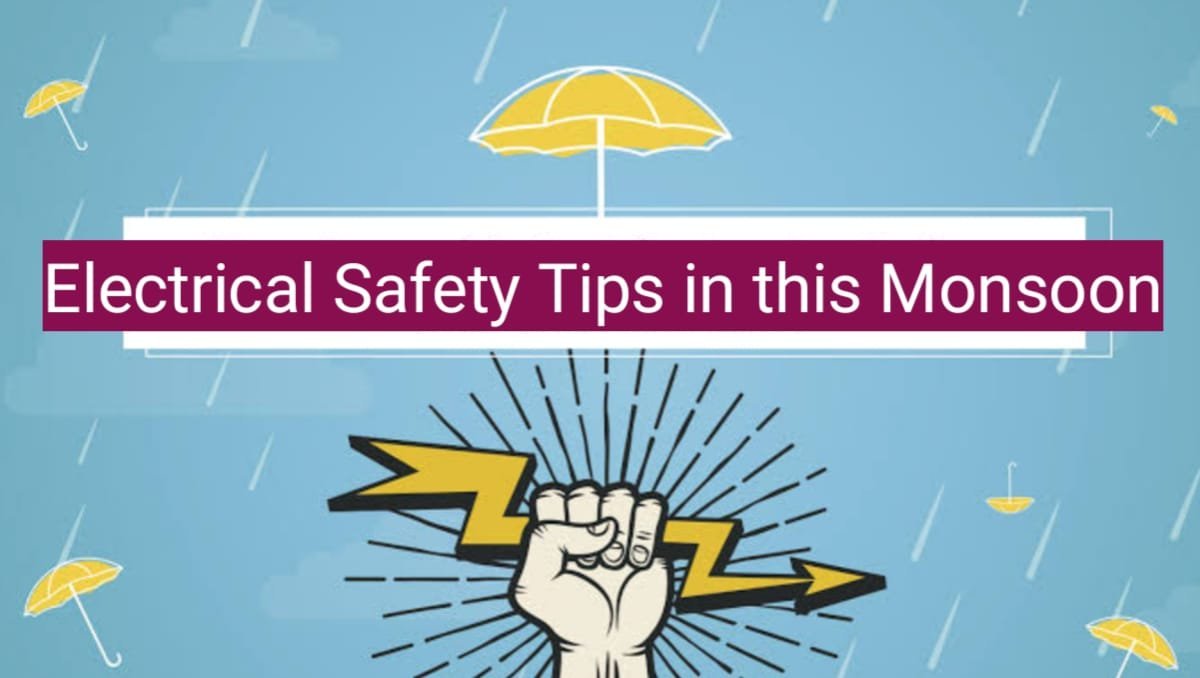
The monsoon season brings relief from scorching heat but also ushers in a set of challenges, particularly concerning electrical safety. Heavy rains and thunderstorms can pose significant risks to homes and communities, especially when it comes to electrical hazards. Here are essential electrical safety tips to keep you and your loved ones safe during the monsoon season.
1. Inspect and Maintain Electrical Systems
Before the onset of the monsoon, it’s crucial to inspect and maintain your home’s electrical systems. Ensure that all wiring, sockets, switches, and appliances are in good condition. Look out for any signs of wear and tear such as frayed wires, exposed cables, or loose connections. It’s advisable to have a qualified electrician conduct a thorough inspection to identify and rectify potential hazards.
2. Use Circuit Breakers and RCDs
Install circuit breakers (MCBs) and residual current devices (RCDs) in your electrical panel. These devices help to protect against electrical overloads and short circuits by automatically cutting off the power supply when they detect abnormalities. They are essential safeguards that can prevent serious accidents like electrical fires during storms.
3. Ensure Proper Earthing
Proper earthing is crucial to dissipate excess electrical current safely into the ground. Make sure your home’s electrical system is adequately grounded, and all appliances are connected to grounded outlets. During monsoons, the risk of lightning strikes increases, and a well-grounded system provides a path for lightning to safely discharge into the ground, minimizing damage to your appliances and home.
4. Protect Outdoor Connections
Outdoor electrical connections are particularly vulnerable during the monsoon. Ensure that all outdoor outlets, extension cords, and connections are weatherproof and protected from rain. Use outdoor-rated extension cords and cover all outdoor outlets with weatherproof enclosures to prevent water ingress. Avoid using electrical appliances outdoors during heavy rain or thunderstorms.
5. Be Cautious with Portable Generators
If you use a portable generator during power outages, place it outdoors in a well-ventilated area, away from doors, windows, and vents that could allow carbon monoxide to enter your home. Operate the generator on a dry surface under a canopy or cover to protect it from rain. Refuel the generator only when it is cool to avoid the risk of fire.
6. Keep Water Away from Electricity
Water and electricity do not mix. Never touch electrical appliances or switches with wet hands. Avoid using electrical appliances near water sources such as sinks, tubs, or pools. If water enters an electrical appliance or outlet, immediately turn off the power supply from the main switchboard and have it inspected by a professional before use.
7. Unplug Appliances During Thunderstorms
During thunderstorms, lightning strikes can cause power surges that may damage electrical appliances and devices. To protect your electronics, unplug them from the power source during a thunderstorm or use surge protectors. Surge protectors help absorb excess voltage and prevent it from reaching your devices, reducing the risk of damage.
8. Educate Your Family About Electrical Safety
Ensure that everyone in your household, including children, understands basic electrical safety practices. Teach them not to play with electrical outlets or cords, and educate them about the dangers of water and electricity. Encourage family members to report any electrical issues or concerns promptly to avoid potential accidents.
9. Stay Informed About Weather Conditions
Stay updated with weather forecasts and warnings during the monsoon season. Be prepared for power outages by having emergency supplies such as flashlights, batteries, and non-perishable food items on hand. Keep emergency contact numbers for utility companies and emergency services readily accessible.
10. Regularly Test Smoke Detectors
Smoke detectors are essential for early detection of electrical fires and other hazards. Test your smoke detectors monthly to ensure they are functioning correctly, and replace batteries at least once a year. Install smoke detectors in every bedroom, outside sleeping areas, and on every level of your home for optimal safety.
Conclusion
Electrical safety during the monsoon season requires vigilance and proactive measures to protect your home and family from potential hazards. By inspecting and maintaining electrical systems, using protective devices like circuit breakers and surge protectors, and educating your family about safety practices, you can significantly reduce the risk of electrical accidents. Stay informed, stay safe, and enjoy the monsoon season responsibly with these essential electrical safety tips.







